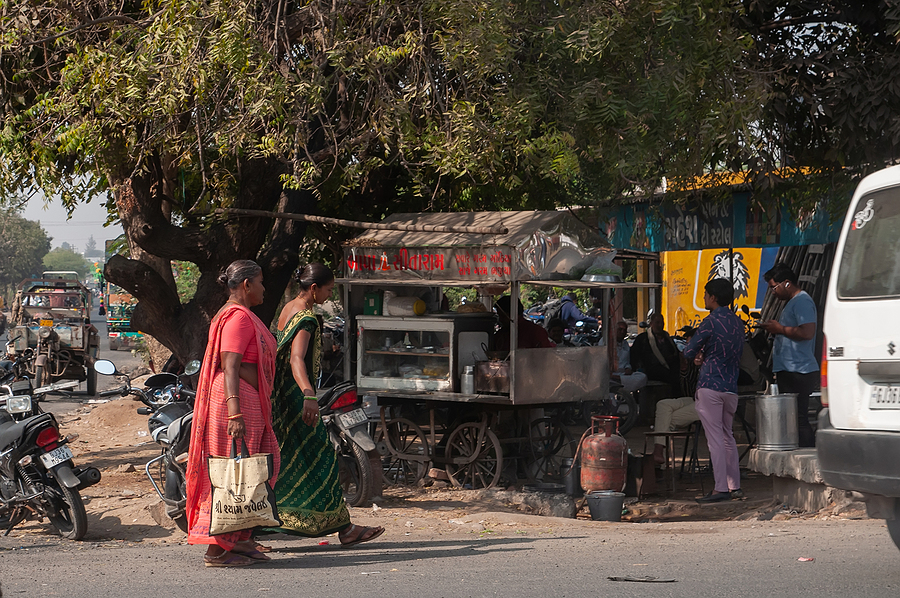
Delhi, India
A growing crisis, the improper disposal of electronic waste, looms over India’s north central region. As technology industries boom and consumers cycle through their devices faster than ever before, e-waste has become a staggering public health and environmental issue. Right behind China and the USA, India is the third largest electronic waste producer in the world, with roughly 2 million tons of e-waste created annually. Coupled with an unidentified amount of electronic waste imported from other countries around the world, India is at-risk.
Lions Clubs International Takes Initiative
Recognizing India’s perilous situation, the Third Vice President of Lions Clubs International, A P Singh, is taking a stand to address this global issue. Lions Clubs are a world-wide, neutral humanitarian service organization, with over 1.4 million volunteers in over 200 countries.
Announcing the immediate distribution of over 300,000 volunteers to help with the crisis, Singh states, “Today, land, air, and water pollution are the biggest challenges facing humanity. E-waste is a clear and present threat to life forms and if left unaddressed might eventually threaten the continued existence of life on this earth.” A powerful statement begging to enact change.
Lions Clubs International have a history of successfully instituting schools and training centers in India, the e-waste outreach is projected to be just as effective. The group will start by raising awareness on responsible electronic waste disposal, shortly thereafter an official campaign will be launched to assist with proper e-waste removal.
India’s Sanitation Efforts in Action
Cleanliness has been a major initiative in India’s recent history. In 2014, Indian government officials signed off on the ‘Swachh Bharat Abhiyan’ awareness campaign, translating to a ‘Clean India’ project. This is arguably the most significant and well received cleanliness mission ever enacted by politicians in India. The campaign primarily focuses on the proper disposal of human waste, legislating national participation around the country. Met with overwhelming support amongst Indian citizens, Swachh Baharat has paved the way for new sanitation standards.
Indian civilians have taken this message to heart, turning out in large numbers to lend a hand. Sweeping the streets, cleaning up garbage, and maintaining a hygienic environment have become standard practice after the release of the ‘Swachh Bharat Abhiyan’ campaign. The people of India are helping spread the message of ‘Cleanliness is next to Godliness.’ Recognizing the benefits of sanitation, Prime Minister, Shri Narendra Modi has simultaneously addressed the health problems that approximately half of Indian families have encountered, due to a lack of proper waste handling practices. Indian officials understand the importance of taking responsibility for waste management in general. E-waste hasn’t officially been deemed part of India’s sanitation efforts, yet. Singh added, “Immediate action is necessary to address this issue. In developed nations, e-waste management is considered the responsibility of every individual.” In India, Lions Clubs are working to create that same awareness.
E-waste Solutions Involve ITAD
High-tech products continue to release at lightning speeds, and consumers are desperate to keep up with this technological evolution. Making laptops, cell phones, and desktop computers obsolete at the fastest rate in history. The best solution is to recycle or refurbish e-waste responsibly, utilizing an IT asset disposition, or ITAD, service.
ITAD, is the practice of how and where to dispose of IT hardware. ITAD companies support disposal needs by updating, upgrading, or otherwise getting rid of end-of-life computer parts. Companies of any size can and should, be utilizing IT asset disposition services to ensure that e-waste is properly handled.
Repurposed Electronics Offer Hope
Lions Clubs are not only utilizing ITAD services to carefully manage e-waste but are taking the organizations motto “Kindness matters” a step further. Lions Clubs plan to use this unique opportunity to donate refurbished devices to underprivileged children. Restored laptops and cell phones will be used to promote basic computer skills and provide minimal-cost access to technology for those who might not otherwise have accessibility. IT asset disposition is the clear solution for e-waste management, benefitting all of humanity and earth’s precious ecosystems equally.
